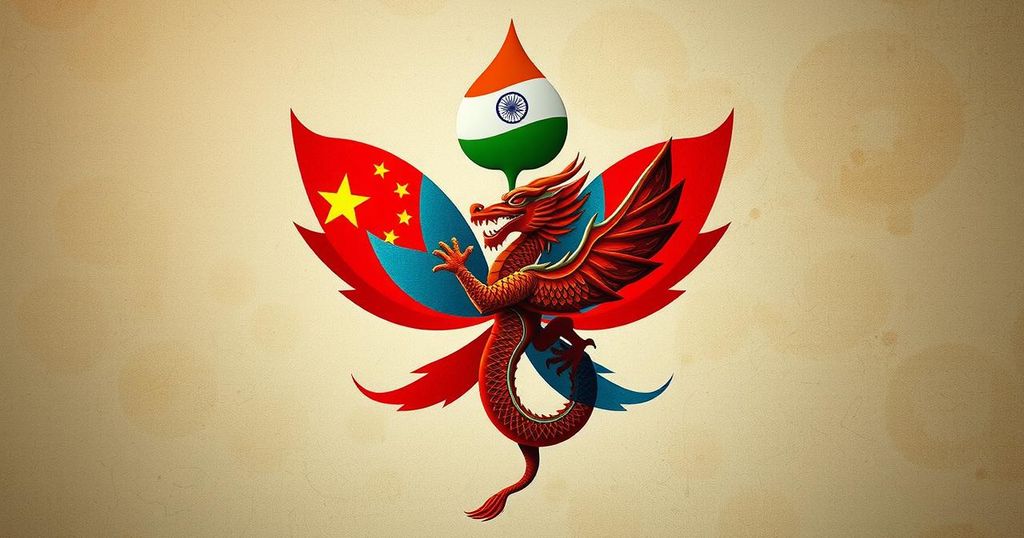As Donald Trump returns to power, India is recalibrating its trade relations to ensure favorable outcomes amid U.S. pressures. The Modi government has reduced tariffs on luxury goods to improve ties, while agreeing to accept deported immigrants. With significant trade deficits looming, India aims to solidify its allyship with the United States through strategic diplomatic efforts and economic realignment.
The re-emergence of the term ‘Chindia’ reflects the complex dynamics as India and China navigate their relations amid Donald Trump’s return to the White House. With significant implications for both nations, India’s government is cautiously adjusting its trade policies. Recent tariff reductions on luxury goods signal India’s attempts to strengthen ties with American companies and mitigate potential fallout from Trump’s administration.
In response to shifting geopolitical landscapes, India is taking measures to ensure favorable relations with the United States. The Modi government is proactively addressing potential threats, such as Trump’s history of imposing tariffs and his administration’s expectations for increased security cooperation. Additionally, India has agreed to accept 18,000 illegal immigrants facing deportation under Trump’s orders, indicating a commitment to align with U.S. policies.
India’s concerns are heightened by its significant trade deficit with the United States, making it a target for Trump’s economic policies. The previous revocation of India’s preferential trade status points to the potential risks involved. Following a recent conversation with Modi, Trump reiterated the need for a more balanced trading relationship, underscoring the expectations placed upon India by the U.S. administration.
Meeting soon with Trump, Prime Minister Modi hopes to secure favorable discussions that may improve bilateral trade terms. These diplomatic exchanges present an opportunity for Modi to address long-standing grievances, particularly with tariffs that have angered American manufacturers. Streamlining tariffs could be critical not only for economic relations but also for maintaining India’s position as a strategic ally of the United States.
The article discusses the implications of Donald Trump’s return to the presidency on U.S.-India relations, particularly in the context of economic policies and trade dynamics. It highlights India’s strategic maneuvers in response to U.S. pressures, particularly concerning tariffs and trade deficits. By addressing these issues, India aims to strengthen its partnership with the United States while navigating complex ties with China amidst shifting geopolitical currents.
In summary, India is adapting to Donald Trump’s renewed presidency by recalibrating its trade policies to protect its interests and strengthen ties with the U.S. The government’s tariff reductions and acceptance of deportees signal a strategic commitment to align closely with American priorities. Moving forward, the forthcoming dialogue between Modi and Trump could be pivotal in shaping future economic relations and ensuring India’s standing as a key ally of the United States.
Original Source: www.scmp.com




